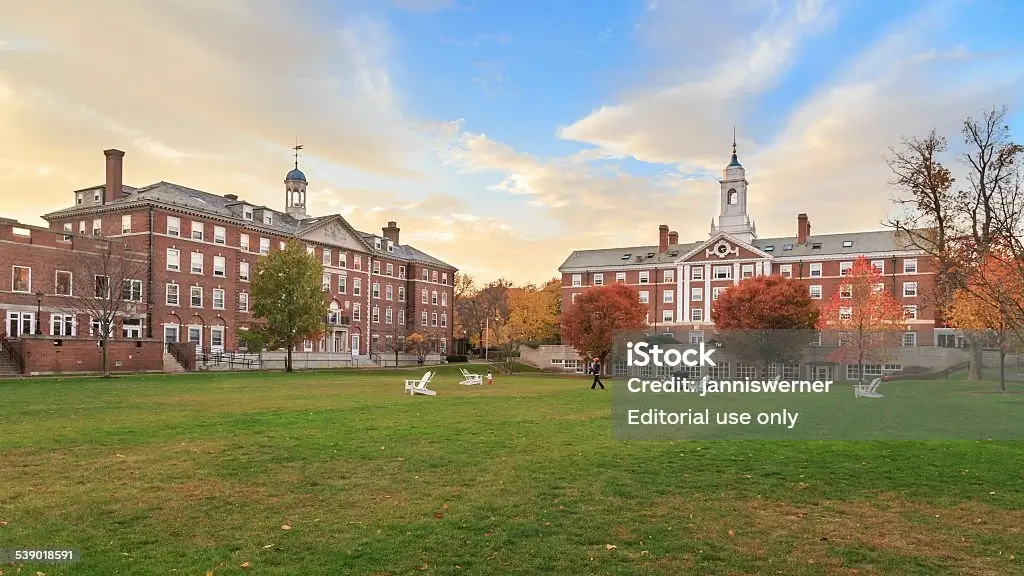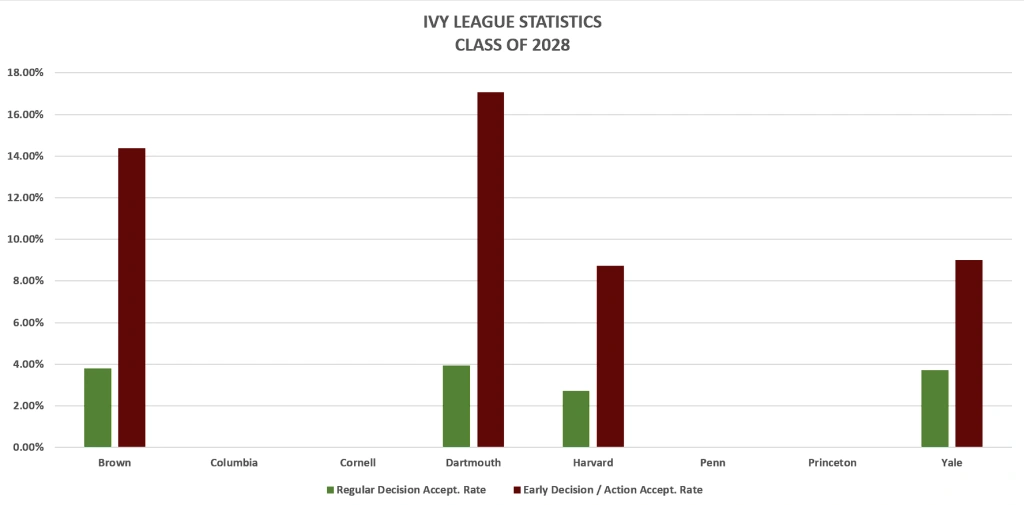
Moonpreneur

Update: This article was last updated on 7th January 2026 to reflect the accuracy and up-to-date information on the page.
Table of Contents
Introduction
The Ivy League schools are renowned for their academic intensity, elite status, and high-caliber students. They don‘t simply look for the best scores like other schools.
They require more of you. They want to understand how fascinating you are. What compels you on a daily basis to come to class? And can they assist you in your journey to become the next global leader?
In brief, they are seeking candidates with an appetite to improve the world through their own unique skill sets, such as leadership, creativity, and design thinking. All of which should be well-emphasized in your college admission resume.
Recommended reading:
When you are writing a college admission resume for an Ivy League College Admission, you need to absorb the fact that for each seat, there are 10-12 outstanding candidates competing for admission. Your resume needs to show your own “voice“ to receive that “Congratulations, you‘ve been accepted” letter in your mailbox.
So how do you stand out among thousands of “deserving” applications? Then how to stand out to Ivy League colleges as an aspirant applicant!
Though there is no guaranteed formula to secure admission, there are certain easy but effective tips to make your resume appealing to admissions officers.
Example of an ideal resume for Ivy League college admission:
[Your Name]
[Your Address]
[Your Email Address]
[Your Phone Number]
[LinkedIn Profile (if applicable)]
Objective:
Dedicated and motivated high school student with a strong academic record, a passion for community involvement, and a commitment to personal growth. Seeking admission to an Ivy League college to pursue a rigorous education and make a positive impact on the world.
Academic Achievements:
- High School: [Your High School Name], [City, State]
- Graduation Year: [Year]
- GPA: [Your GPA]
- Class Rank: [Your Class Rank]
- SAT/ACT Scores: [Your Scores]
- Honors and Awards: [List any academic honors or awards]
- Relevant Coursework: [Highlight advanced or relevant courses]
Extracurricular Activities:
- President, [High School Club or Organization]
Description of leadership responsibilities and achievements - Member, [Relevant Extracurricular Activity]
Description of your involvement and impact - Volunteer, [Community Service Organization]
Description of your volunteer work and contributions - [Any other extracurricular involvement]
Leadership Experience:
- [Leadership Position], [Club or Organization Name]
Description of your leadership role and its impact - [Leadership Position], [Another Club or Organization]
Description of your leadership role and its significance
Internships and Work Experience:
- [Internship or Job Title], [Company/Organization Name]
Description of your responsibilities and accomplishments - [Internship or Job Title], [Another Company/Organization]
Description of your responsibilities and achievements
Research Experience:
- [Research Project], [Research Institution/University]
Description of your role and findings - [Another Research Project], [Institution/University]
Description of your role and contributions
Skills:
- Technical Skills: [List any relevant technical skills]
- Language Skills: [List any foreign languages and proficiency levels]
- Other Skills: [Any additional skills or certifications]
Community Involvement:
- [Community Service Project], [Organization/Location]
Description of your contributions and impact - [Another Community Service Project], [Organization/Location]
Description of your contributions and significance
Hobbies and Interests:
- [Hobby/Interest], [Brief description]
- [Another Hobby/Interest], [Brief description]
Awards and Honors:
- [List any awards or honors received]
References:
Available upon request.
5 Ways to Get Your Resume Noticed In IVY League College Admission
1. Emphasize your achievements, not your activities
Your activities are of no interest to admissions officers; they are curious about what you achieved through these activities. For an evaluator, extracurricular activities are divided into four levels which determine a good Ivy League CV.
- Tier 1 includes rare or exceptional activities, such as being a nationally ranked athlete.
- Tier 2 consists of activities that promote important achievements such as being student body president.
- Tier 3 encompasses lesser achievements, like working as an editor of the school newspaper.
- Finally, Tier 4 includes general involvement in student organizations and other recreational activities.
While it is not necessary to divide achievements into these particular levels, doing so might assist you in presenting the most stunning and effective dimensions of your college-level extracurricular activity best on your college admission resume.
Recommended blog: Use ChatGPT To Build Your Resume
Let’s have a look at an example of the first tip:
Right Example✔️
Throughout my high school years, I helped to coordinate and lead a charity fundraising event that raised over $10,000 for a local homeless shelter. This made me feel like a responsible citizen and increased my confidence in my ability to make a positive impact on my community.
Wrong Example ❌
Throughout my high school years, I was a student on the student council, a member of the basketball team, and a member of several clubs.
2. Put your accomplishments into numbers
Putting accomplishments into numbers can be an effective means of making achievements be noticed on college applications, particularly when learning how to create a profile for Ivy League admissions. Adding specific statistics, percentages, or other measures can give concrete measures of the impact and accomplishments of activities engaged in. For instance, rather than simply putting “volunteered at a Blind Association for Kids,” put “volunteered at a Blind Association for Kids for 100 hours, reading to more than 500 visually impaired children.” Quantifying achievements gives admissions readers more details about your accomplishments and demonstrates that the student is goal-oriented, detail–oriented, and results-driven. But it‘s worth noting that not everything can be easily measured, and that‘s fine. In those instances, it‘s still necessary to define the activity and its effect as precisely as possible.
Recommended reading: Tips for SOP for College Admission in IVY League
Let’s look at an example of the second tip:
Right Example✔️
I was the captain of the debate team, taking us to win several regional tournaments and having a 35% growth in team members within one year. My input in the planning of a series of workshops enhanced our debating skills, earning us an 80% success rate.
Wrong Example ❌
I was engaged in some extracurricular activities, including the debate club, student government, and drama club.
3. Use strong action verbs
Employing strong action verbs will render the college admission resume more active by illustrating your capability to initiate and get things done. Rather than claiming that you “participated“ in an organization or club, utilize stronger verbs such as “led,” “initiated,” or “organized.”
But use these verbs carefully with the intention of crafting an interesting story of your accomplishments and influence without sounding arrogant or fake.
For instance, rather than stating “took part in a community service project,” you might say “led a group of volunteers in a community service project that raised 500 pounds contributed to a local food bank.
Employing the action verb “led“ and giving the precise information regarding the money raised is likely to capture the attention of the reader.
Recommended reading: Declining Acceptance Rates of Ivy League: Insights for Aspiring Students and Parents
Here is an example of the third tip:
Right Example✔️
I organized a school-based recycling program, which cut down on the production of waste by 50% and won our school an award for sustainability initiatives on the state level.
Wrong Example ❌
I participated in several environmental activities at my school, such as recycling and conducting awareness campaigns.
4. Follow One-Page Rule
Admissions officers have to read thousands of applications, so it‘s best to keep your Ivy League resume short. Most Ivy coaches and consultants will request that you adhere to the “One Page Rule.”
“Rather than the popular notion of putting everything in the application under the sun, the ‘less is more‘ philosophy works like a charm,” says Caroline Koppleman. Caroline, founder and CEO of The Koppelman Group (TKG), continues, “keeping it on what‘s really the most essential. A resume is a condensed snapshot of who you are. It’s not supposed to be deep or thorough, and the one-page requirement is a vital filter.“
- Use bullet points to separate lengthy paragraphs, and use only necessary information.
- Don’t use tiny fonts or excessive colors, as these can cause your resume to appear cluttered and hard to read.
Finally, getting your resume for college admission noticed in Ivy League colleges is a mix of strategy and attention to detail.
“The font should be readable without zooming in with 0.5-inch margins, and it should be one page, Caroline continues to add.
Recommended reading: How To Choose A College Admissions Counselor
Let’s consider an example of the fourth tip:
Right Example✔️
I wrote my application essay carefully to illustrate my love for environmental science and how it relates to my life experiences. It‘s simply a single powerful page sharing my history and aspirations.
Wrong Example ❌
My college admission essay is a sprawling three-page narrative that delves into every aspect of my life, hobbies, and dreams.
Moonpreneur
5. Tailor your resume to each college
While it’s essential to have a general resume highlighting your achievements and activities, it’s also a good idea to tailor your resume to each college to which you’re applying.
Using an Ivy League resume template, research each college’s mission, values, and programs, and customize your resume to highlight the aspects of your background and experiences that align with those of the college.
 This chart displays Ivy League app trends for the Class of 2028. Apps grew at Yale, Princeton, Columbia, Dartmouth, and Penn but fell at Brown, Harvard, and Columbia. Cornell hasn’t released sufficient data to determine whether their numbers rose or fell.
This chart displays Ivy League app trends for the Class of 2028. Apps grew at Yale, Princeton, Columbia, Dartmouth, and Penn but fell at Brown, Harvard, and Columbia. Cornell hasn’t released sufficient data to determine whether their numbers rose or fell.
Conclusion
Preparing an Ivy League CV for IVY League College is not something you can do the night before the application. It needs to be planned out methodically. You need to be truly worthy, and each word must reflect your potential. With proper guidance and the right approach, preparing a winning resume for IVY League College Admissions is easier than you imagine.
So, if you’re aiming for an IVY League education, remember that your resume is your chance to showcase your unique talents and achievements on how to stand out to Ivy League colleges.
Take the time to craft a compelling story that highlights your strengths and experiences. And don’t forget that seeking feedback from others can make a big difference in the quality of your application.
Keep striving and believe in yourself – the future is yours to shape!
Good Luck 🙂
Moonpreneur is on a mission to disrupt traditional education and future-proof the next generation with holistic learning solutions. Its Innovator Program is building tomorrow’s workforce by training students in AI/ML, Robotics, Coding, IoT, and Apps, enabling entrepreneurship through experiential learning.


























I am struggling to strike a balance between highlighting these accomplishments and making sure the CV is clear and concise, help me with it.
One of the most important things you can do to make your CV stand out from the crowd when it comes to Ivy League admission is to use moderation. Put accomplishments before involvement. Measure your achievements. Use powerful action verbs. Keep your CV on one page. Tailor it for each school. Stick to bullet points. Use a consistent font. And don’t forget to proofread.
Quantifying achievements is great, but in competitive schools, standing out can be tough. What do admissions officers value beyond numbers?
Competitive schools prioritize qualities such as character, drive, leadership, diversity of perspective, tenacity, community involvement, interpersonal abilities, creativity, and alignment with school values, as well as personal essays, in addition to quantifiable achievements. It is important to consider one’s identity, contributions, and integration into the institution’s ethos.
What types of multimedia are highly valued by Ivy League universities and how can students incorporate multimedia elements into their applications without impressing admissions officers or detracting from the traditional resume format?
Using multimedia in your Ivy League college application might be a good idea if you do it right. Ivy League universities love audio samples and graphic presentations. They also love internet portfolios and video presentations. When using multimedia in your application, you want to make sure it’s professional, concise, focused, and balanced with conventional elements. You also want to make sure that it’s relevant so that you don’t come across as overly personal. Make sure that your multimedia is easy to access, use it as an extracurricular activity, use it consistently, and follow the rules. When used correctly, multimedia can help your application by giving a fuller picture of your achievements and skills.
It’s easy to think that just following a few guidelines will get you into the Ivy League, but that’s not the case. The Ivy League’s admissions process is complicated and highly selective, and it’s important to remember that, while the advice on this blog might be helpful, the application process is way more complicated than that.
What are the core components of the admissions process for Ivy League schools?
Below are the core components of the admissions process at each of the eight Ivy League institutions: